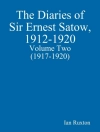Thomas Wolfe’s ‘Look Homeward, Angel’ stands as a monumental achievement in American literature, capturing the tumultuous journey of self-discovery and familial dynamics through the lens of the protagonist, Eugene Gant. Written in a lyrical, evocative style, the novel weaves rich, impressionistic imagery with semi-autobiographical elements that reflect the complexities of youth and the longing for identity against the backdrop of early 20th-century America. Wolfe’s narrative intri...
Thomas Wolfe’s ‘Look Homeward, Angel’ stands as a monumental achievement in American literature, capturing the tumultuous journey of self-discovery and familial dynamics through the lens of the protagonist, Eugene Gant. Written in a lyrical, evocative style, the novel weaves rich, impressionistic imagery with semi-autobiographical elements that reflect the complexities of youth and the longing for identity against the backdrop of early 20th-century America. Wolfe’s narrative intricately explores themes of aspiration, love, and the inexorable pull of home, set within the small-town context of Asheville, North Carolina, mirroring elements of Southern Gothic literature. Thomas Wolfe, born in 1900, drew heavily from his own upbringing in a family-run boarding house in Asheville, which inspired much of the novel’s setting and character dynamics. Wolfe’s experiences with both the suffocation of familial expectations and the longing for artistic expression directly inform his vivid portrayal of the Gant family. His education at Harvard and his extensive travels in Europe further cultivated his literary prowess, allowing him to articulate profound existential questions through his unique narrative voice. ‘Look Homeward, Angel’ is a must-read for anyone seeking a profound understanding of the intricacies of human relationships and the quest for belonging. Wolfe’s masterful prose invites readers to reflect on their own roots and aspirations, making it a timeless exploration of the universal struggle between the heart’s yearning and the ties that bind.












